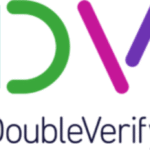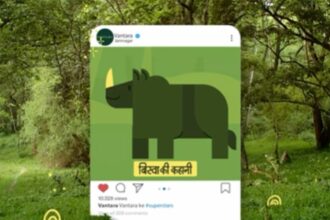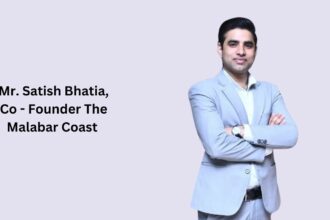In 2020, Danica Octa was just one of the millions of people who lost their jobs in the height of the COVID-19 pandemic. Then an HR-professional who was ironically out of work, she remained ever committed to finding solutions on how to rise above the challenges of the new employment landscape, and helping others do the same. Today, she continues to redefine the role of education in careers, and helping professionals find their meaningful and purposeful careers, her own way. She does so through career coaching.
To Danica, coaching as a practice is actually a process of helping clients identify roadblocks and formulate solutions that best fit their needs. It’s different from consulting in that consulting is more of diagnosing the problem and telling the client what to do. In a coaching relationship, the coach guides the client in discovering their solutions on their own. They do this by helping them eliminate limiting beliefs, rewire their mindset, and draft their ultimate life purpose and goals.
With the upcoming Fourth Industrial Revolution, where the period where the digital, physical, and biological world blurs, Danica realizes that more surprises and changes will come for the Future of Work. That means more and more people need to be educated about careers, HR, employment, and the overall job market in order to reduce the unemployment and skills gap.
I sat down with Danica, now the President and CEO of Metamorphosis Group, Fortune 500 Career Coach, Personal Branding Expert, and Talent Consultant, to learn more about her story. We talked about her journey to becoming a full-time career coach and how she used this as a means to change lives and guide people to find meaningful careers.

Hi, Danica! Thank you for agreeing to meet me. With all the growth that’s been happening, I’m proud to have been your first client and to have seen your venture grow in such a small amount of time. I know everything’s changed since then, and I wanted to ask how you overcame the struggles of losing your job and building an empire from scratch?
I was a recruitment consultant then. I worked on some of the biggest recruitment projects the industry has ever seen and I did it with much passion and purpose. I recall approaching my job as if I was a career coach — helping candidates work on their resumes and interview skills so the hiring manager can see their potential and good fit for the organization.
When they get the job offer, I cheer and celebrate with them. When they don’t, I comfort them and inspire them to see other better opportunities. It felt like a mission in life and I thought I was going to do recruitment forever as a means to helping people find jobs. When the pandemic happened, I did my best to help redundated and retrenched employees be the best fit in my job requisitions. Ironically and unfortunately, I, a recruiter, lost my job as well. I saw it coming and I was ready to prepare to become a full-time entrepreneur and career coach. But it came faster than what I anticipated.
Of course, I was disappointed. And yes, I took it really bad for a few days. But after a lot of life experiences and knowing how to deal with losses like this, I stood up from my bed one day and decided to reach out to past companies and offered to make them my career coaching clients. That time, an outplacement career coaching firm approached me asking me to do career coaching for displaced workers in Fortune 500 companies. It was then that I realized that there was another way to fulfill my desired mission. Eventually, this opportunity became the start of my biggest break.
The progress in starting a full-time business is usually slow and frustrating. What does your story look like?
I reached out to my connections who used to express their interest in getting my career coaching services. I told them I was finally available. Eventually, I decided to be bold enough to tap the international market. At the beginning, I got about four overseas calls from the US, UK, Germany, and Thailand. As a 24-year-old entrepreneur trying to figure things out, make a difference, and thrive at the same time, you would probably think that I was intimidated by getting myself into these situations. If you think so, then you’re not wrong.
It is scary. Not knowing if I can help people. I told myself that there will always be people you cannot help no matter how hard you try. Helping someone from a different country with a different context and more advanced technology? It’s not hard to assume that they might know better than me.
There will always be those kinds of fears when jumping into the unknown. But like the saying goes, you’ll never know until you give it a try. When I jumped into it, I realized how similar they were to Filipinos in more ways than I knew.
First there was this 30+ year old UK citizen ranting about how nobody taught job hunting in schools and that they were only taught the fundamentals to pass the exam. Upon graduation schools acted like “Well then you got your degree. Now go ahead and figure out how you can find a job!” and I empathize with his disappointments.
Then there was this 30+ year old US army veteran saying that he doesn’t know how to show his value to employers even with all the hard work he puts. He said employers wouldn’t bother giving him a higher position, let alone a raise. I told him after conducting a mock interview that he couldn’t communicate the best parts about his talents properly and that he just needed to know how to work on his personal branding.
Then this young Thai fresh graduate hasn’t been employed ever since. I found out that he wasn’t looking at all options in looking for jobs. He said there weren’t jobs available in Bangkok. I told him to try out websites like www.monster.com and that Thai-founded job board they have called GetLinks. And I quote him “How come you know more about Thai job platforms than me?”
Lastly, a late 20’s Indian living in Germany, also had the same problem as the Thai. In addition to this, he was also complaining about how it seems his MBA degree hasn’t helped him land a job and that if only he knew more people who can help him get inside a company and land at least a job interview. I told him to approach a recruitment consultant since it’s their job to find candidates for employers. Of course, they were more than willing to help him, and even defend him to the death if needed. He was very much happy with my advice.
These are not new problems to me. I’ve talked to Filipino job seekers with the same problems. They’re all just like my fellow Filipinos. Everyone was just trying to find ways to get by.
That was when my perspective grew, and so did my opportunities.

We’ve already reached 2021, how big has your company grown at this point, and what other goals did you set for your venture?
When I was starting to gain momentum for my venture, I promised myself that, with the help of my partners, that I would be going into a business to business (B2B) market. Given my experience, knowledge, and industry expertise about the talent market, I offered my services to companies and organizations as their Talent Consultant.
True enough, in the first quarter of 2021, we’ve already reached our biggest break yet — breaking into the B2B space, and we did it successfully. Some of the things that we’ve done include conducting a webinar for HR professionals about building a strong digital recruitment strategy. Another workshop that we did was on how to overcome limiting beliefs and stress in a work-from-home setting for BPO employees. We were also given the opportunity to be a consultant for job market intelligence company so that the information can be used to help policymakers, employers, schools, and even job hunters lessen the unemployment and skills gap in the market.
Last question, of all the achievements that you have attained, what are you most proud of?
In the 10 months that we have been formally operating, and despite the odds posed by the pandemic, my team was able to help more than 200 of jobseekers get hired from struggling industries in the Philippines and in different parts of the world. We’ve coached over 200 clients all over the world including North America, Europe and Middle East, Asia Pacific, and Africa. In just a few months of operations and with only the first quarter of 2021, we have already grown our gross revenue to 700% since last year. I find this impressive for a business that started out from scratch.
Internally, we have also employed and empowered more than 20 of career coaches in helping us help others, and launched a valuable internship program for college students to jumpstart their career education.
Any final words for our audience?
I couldn’t have done it without the help of my supportive and motivating partners, Reinnite Madrid, Ricson Singson Que, Maria Paulino, and my sister, Jillian Octa. I don’t completely give credit to myself for achievements like these, so I am happy to share that they have contributed to my venture’s success.
Despite seeing my employment be taken away from me by this pandemic, I’ve proven that unique opportunities await in a struggling economy. I remembered my managers from my last job, and how when they asked me how I felt about being displaced, I only had this to say:
“Don’t worry. I’ll move forward. I’ll find a new job. And if I don’t, I’ll make one myself.”
And that’s exactly what happened.

















